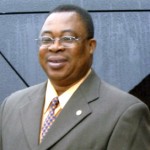
The last time I wrote an article questioning why the NPP would want to seek refuge in him after losing the elections and taking to the streets to present a petition to him, I was virtually “eaten alive” by those who didn’t want me to criticize him.
Some even threatened to have me expelled from my workplace for daring to take on their sacred cow.
Now, here is a good reason for me to return to the politics involving the Asantehene. He has been in Accra and done many things, including paying courtesy calls on President Mahama, ex-President Rawlings, and the defeated Akufo-Addo.
He made pronouncements with intriguing implications at each meeting. He asked President Mahama to do all he can because he is “the President” and also asked Akufo-Addo to accept the outcome of the Supreme Court’s hearing of his petition challenging the outcome of Election 2012.
Then, he delivered this year’s democracy lecture organised by the National Commission for Civic Education (NCCE), and made interesting suggestions and observations:
i. He condemned the serial callers and propagandists who dirtied Ghanaian politics (which I praise as very insightful and necessary);
ii. He condemned the politicization of “everything” in the country, which he claimed to be doing more harm than good (which is also laudable by all standards); and
iii. He advocated for the inclusion of chiefs in Ghana’s democracy (which I reproduce below, courtesy Myjoyonline).
He said traditional authorities cannot be excluded from playing a role in the country’s democratic process. Under the 1992 constitution, traditional authorities are excluded from taking part in active party politics.
But he has argued that there is nothing wrong with chiefs assisting to advance the course of Ghana’s democracy.
Despite their democratic credentials, there were monarchs in Great Britain, Kingdoms of Netherlands, Norway Sweden, Spain and several other countries he said.
“Is there any country more democratic than these great states yet all of them are headed by monarchs?” he asked.
The Asantehene cited the Commonwealth and said the foundation of its influence was the monarchy despite the institution’s “abiding values” of democracy, good governance, and the rule of law.
He said: “It is difficult to think of any institution that has done more to advance the cause of democracy than the Commonwealth. But if the truth be told, the Commonwealth has been held together by the overriding allegiance and respect for the uniting influence of the British Monarch.”
He concluded that enlightened monarchies provide their countries with the spirit of unity and national pride.
MY COMMENTS
The Asantehene’s suggestions and observations provide enough food for thought. If he wants chiefs to be involved in partisan politics, he is calling for far too much because of the nature of Ghanaian politics—divisive, acrimonious, and virtually damning.
Do our chiefs have the stomach for the “nonsense” that this kind of politics entails? How will they feel if slighted by political opponents? Can they remain as “unifiers” or go all out as praise-singers, ventriloquists, and sycophants to be bad-mouthed at will, especially by political opponents?
It is not strange for chiefs to be castigated at will by those who see them as a “nuisance” in many areas of the country where some bad nuts (misguided chiefs) have misconducted themselves—indulging in dubious/criminal activities, selling and re-selling lands, and inciting communal unrest just to save their own status and protect their interests. The numerous chieftaincy and land disputes that we have in the country can be traced to the activities of unscrupulous chiefs who allow their selfish interests to take the better part of them.
Can Ghanaian chiefs not contribute to our democracy in ways other than being deeply involved in partisan politics? The framers of the 1992 constitution did a good job by debarring them from doing so and this must be maintained to save the chieftaincy institution itself from being torn apart by sectional interests.
Why do the chiefs have Regional and National Houses of Chiefs? Can’t they use such avenues to make contributions with wide-ranging benefits for the country’s democracy if properly channelled to the appropriate quarters to be adopted?
We already have some chiefs in the Council of State and others are serving in other capacities of high repute. Can they not contribute their quota therefrom without tainting themselves with partisan politics? Many troubling questions, not so?
Now, let me briefly say something about the Asantehene’s charge to President Mahama to act as the President. Of course, he hasn’t so far congratulated President Mahama since the Electoral Commission announced him as the winner of Election 2012. Numerous chiefs and Regional Houses of Chiefs have done so, but not the Asantehene. I leave the rest to you, friends.
His interaction with Akufo-Addo has brought out the promise from Akufo-Addo to respect the decision of the Supreme Court. We hope he will be honest enough to do so. We have hindsight knowledge of the Kumasi Peace Pact that the Asantehene fostered for Akufo-Addo to sign only to go wild when he lost the elections. The mayhem that his followers caused in Accra couldn’t have happened had he stuck to the terms of the Peace Pact.
As the proceedings continue at the Supreme Court, I hope that all those with high stakes in the petition will remind themselves of the dire consequences of any ill-thought-out move that they may make in reaction to the outcome.
Those who want to build the future do not sit down and prate over the past (as is the case of this petition against Election 2012). We can’t, however, throw away the past because we must build the present on it; but we must not allow the past to stand in our way as we attempt moving forward.
I shall return…
• E-mail: mjbokor@yahoo.com
• Join me on Facebook at: http://www.facebook.com/mjkbokor
The opinions expressed are the author’s and do not necessarily reflect the views or have the endorsement of the Editorial Board of www.africanewsanalysis.com, www.africa-forum.net and www.wapsfeatures.wordpress.com
